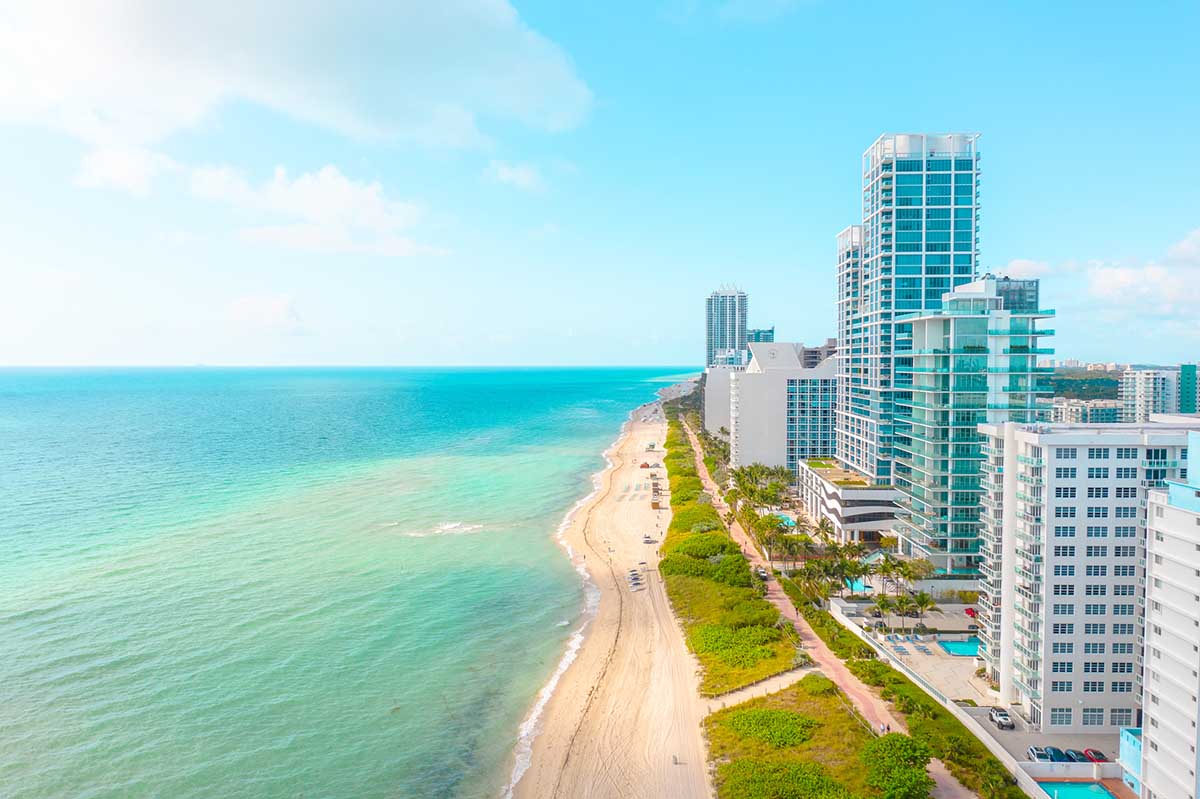For aspiring real estate agents, there is no better place to set up practice than Florida. While the rest of the country struggles with housing shortages, Florida has bucked the trend and has shown marginal growth in the real estate sector. For owners of real estate in the state wishing to sell, it is good news too. 2023 started with median home prices hovering at $450k but by the time the year was through, it had grown to $468k.
Practitioners of real estate in Florida can offer a wide range of properties to their buyer clients. From condos to single-family homes, from apartments to beach-facing luxury properties, Florida has everything going for real estate investors. If you are dedicated and hardworking, earning a six-figure income need not be a distant dream for you.
So, are you ready to take the plunge? If yes, your entire focus should be to get a real estate license Florida and launch a very successful and lucrative career.
This post will take you through the steps to get a real estate license in the state including recommendations on the pre-licensing coursework.
We can break up the process into two parts. The first is the basic requirements and the second is the stages to go through after fulfilling the first part.
Basic requirements to get a real estate license in Florida.
To be eligible to apply for a license in Florida, you must be at least 18 years old and a citizen of the USA. Legally-admitted migrants can also apply for a license if they have been sanctioned working rights in the country. The minimum educational requirement to apply for a license is a high school pass, GED, or equivalent.
Stages of getting a real estate license in Florida
# After you have met all the basic requirements, the first step is to go through 63 hours of pre-licensing coursework as mandated by FREC. This body is the controlling authority for the real estate industry in Florida and is responsible for fixing the pre-licensing course content and issuing, renewing, and revoking licenses if the situation so warrants.
The reason why completing the coursework forms a critical part of being awarded a real estate license in Florida is because it imparts in-depth knowledge of the sector. The full course content is given below. Once you complete the coursework, you are fully prepared to offer the best service to your clients in the future.
The 63 hours of coursework consists of the following subjects.
- Real Estate Business
- Real Estate Laws and Licenses
- Real Estate Contracts
- Federal and State Laws
- Real Estate Commission Rules
- Real Estate Brokerage and Procedures
- Real Estate Appraisal
- Authorized Relationships, Disclosures, and Duties
- Violations of Real Estate Laws, Penalties and Procedures
- Types of Mortgages
- Titles, Deeds, and Ownership Types
- Real Estate Financing
- Market and Industry Analysis
As you can see, the coursework covers in detail every facet of the real estate industry that you should know about.
While there are several course providers, do not blindly pick one for your studies. First, check if the provider is approved by the FREC. Ask the provider or better still, visit the website of FREC to check the list of approved course providers. This is important as any study materials not approved by FREC do not count toward fulfilling the educational eligibility norm for the licensing exam.
Another important consideration is whether you should choose an online course or a classroom setting. While this entirely depends on your learning style, online courses have a built-in convenience factor. You do not have to spend time commuting to classes or being limited by fixed classroom duration. Further, online course materials can be downloaded on any Internet-enabled device for anytime study and from anywhere. Your normal routine will not be disrupted because of your study time.
Among the best FREC-approved online course providers to get a real estate license in Florida is RealEstateU. Their courses are designed by top professionals in the field while being very affordable too.
In general, online courses can be had for $100 to $400.
# After completing the 63 hours of coursework, submit your fingerprints for verification of any past criminal records. Without a clearance certificate from the authorities, you will not be issued a real estate license in Florida. The fee for the fingerprint test in Florida is $58.12.
# Visit the portal of FREC, pay a fee of $57.75, and schedule a licensing exam. Though the test is held online, you must be physically present at the designated center on exam day to take the test. The licensing exam has a national section that covers topics generic to the country and a state-specific section that has questions about the laws, rules, and regulations related to Florida only. All questions are in multi-choice format with the passing score being 75%.
# After clearing the licensing exam, visit the portal of the Florida Department of Business and Professional Regulation (DBPR) to apply for a real estate license in Florida. Upload proof of having completed the 63 hours of pre-licensing coursework and the fingerprint clearance certificate. The license application fee is $87.75. Now, a provisional license will be issued to you.
# Find a broker to sponsor and mentor you during the initial stages of your career. At the brokerage, you will be guided on the business aspects of real estate and even be provided with referrals to launch your career.
After FREC verifies your employment status at the brokerage, you will be issued an active real estate license in Florida to launch your career.

